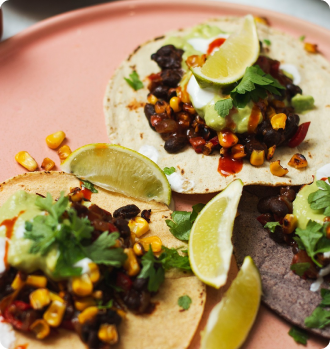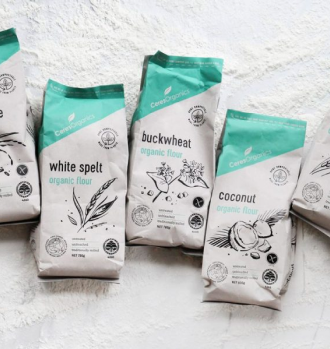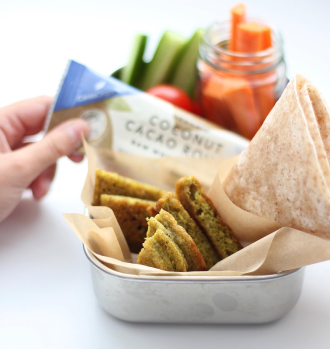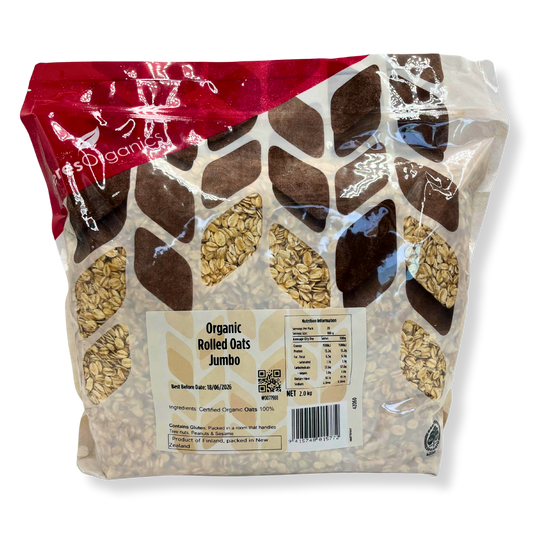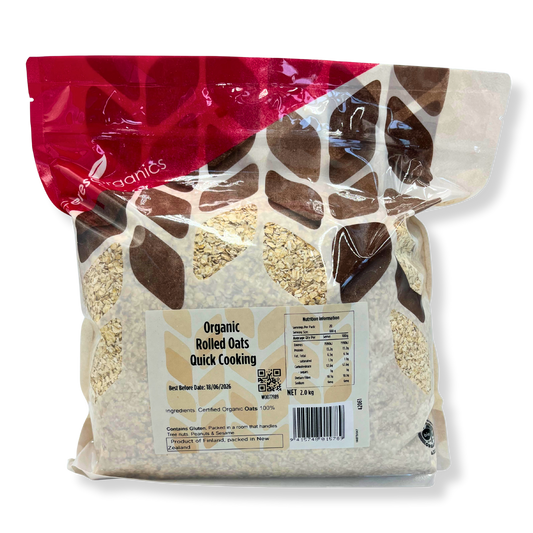
Can Oats Be Gluten Free?
There’s a lot of confusion around oats and whether they can actually be gluten-free or not. Well, in New Zealand and Australia, oats cannot be classed as gluten-free. To understand why, we’ll explore what gluten is, the difference between Coeliac disease and non-Coeliac gluten sensitivity, and the legal definitions for food labelling.
There’s a lot of confusion around oats and whether they can actually be gluten-free or not. Well, in New Zealand and Australia, oats cannot be classed as gluten-free. To understand why, we’ll explore what gluten is, the difference between Coeliac disease and non-Coeliac gluten sensitivity, and the legal definitions for food labelling.
What Is Gluten?
Gluten refers to a prolamin protein fraction that triggers an immune response in individuals with Coeliac disease. The specific gluten fractions are:
-
Gliadin in wheat
-
Hordein in barley
- Secalin in rye
This is where there tends to be confusion with oats, which contain a similar protein strain called avenin. While this protein is tolerable by the majority people with Coeliac disease, research has shown that approximately one in five people with Coeliac disease will have an immune response to uncontaminated oats.
To complicate things further, oats are highly susceptible to cross-contamination with wheat, barley and rye during growing, harvesting and processing.
What Is Coeliac Disease?
Coeliac disease is an autoimmune condition where consuming gluten causes an abnormal immune response, leading to inflammation and damage of the small intestine. This can cause symptoms including bloating, vomiting, gas, diarrhoea or constipation, unintentional weight loss and anaemia.
When people with Coeliac disease eat foods containing gluten, their body produces antibodies that attack the intestinal lining. This impacts the body’s ability to absorb vitamins, minerals and other nutrients – leading to nutritional deficiencies and long-term health complications. Because even small amounts of gluten can cause damage, individuals with Coeliac disease must strictly avoid all forms of gluten.
For information of diagnosis, visit Coeliac New Zealand.
Coeliac Disease vs. Non-Coeliac Gluten Sensitivity
While Coeliac disease is an autoimmune condition with serious health implications if gluten is consumed, non-Coeliac gluten sensitivity is a different story. This refers to individuals who experience digestive discomfort from gluten, but do not show the same immune response or intestinal damage.
For people with non-Coeliac gluten sensitivity, avoiding gluten may relieve symptoms, but they do not need to be as strict as those with Coeliac disease. And chances are, they can have oats without any issues. However, current advice from Coeliac New Zealand is that people with coeliac disease should not consume oats, as it's impossible to predict who will react until they experience symptoms or undergo testing.

Can Oats Be Labelled Gluten-Free?
You may come across some oats marketed as gluten free. This refers to oats that have been grown and processed without coming into contact with wheat, barley or rye. While this sort of labelling is okay in some countries around the world, it isn’t the case in New Zealand or Australia. Under the Australia New Zealand Food Standards Code (FSANZ) oats and products containing them are not permitted to be labelled gluten-free. Period. Some brands try to get around this by using informal claims, such as ‘gluten-friendly, for uncontaminated oat-based products, but this is not a legally recognised label under FSANZ.
Strict Gluten-Free Standards in New Zealand and Australia
New Zealand and Australia have some of the strictest gluten-free standards in the world. According to FSANZ, a product can only be labelled 'gluten-free' if it contains no detectable gluten, with current testing technology able to detect gluten in amounts as little as 3 milligrams per 100g food (3 ppm). In other parts of the world the threshold is much higher, at 20 ppm. Products making a gluten free claim must undergo regular independent laboratory testing to ensure they continue to meet these standards.
Many food labels also carry voluntary warnings like 'may contain wheat or gluten' to indicate possible cross-contact during growing, harvesting or processing. While not a legal requirement, these statements help people make informed choices.
To view a list of our gluten free products, click here
What about Organic Oats?
While those with Coeliac disease should avoid oats, they are likely to be just fine for those with gluten sensitives. If you are going to have oats, your best option is organic.
Choosing organic oats reduces your risk of chemical exposure, as they are grown without the use of synthetic pesticides and fertilisers, including the controversial glyphosate (commonly known as roundup). Although glyphosate has been banned in some countries, did you know it has been found in two well-known NZ oat brands? A 2020 Consumer NZ test found both had residues approximately three times higher than the specified maximum residue levels. Pretty concerning, right?
Rest assured, Ceres Organics Oats contain no such chemicals, as they are grown and processed following strict organic standards. We believe organic production is the only sustainable option for protecting our health, our planet and our future generations.
Learn more about our organic oats here

Key Takeaways:
-
Oats contain avenin, which can trigger a reaction in 1 in 5 people with Coeliac disease.
-
In New Zealand and Australia oats or oat-containing products cannot be labelled as 'gluten-free'.
-
Gluten-free products sold in New Zealand and Australia must contain no detectable gluten (≤3 ppm).
- Ceres Organics Oats offer a certified organic choice, free from worrying chemicals.
If you have Coeliac disease or gluten sensitivity, always check food labels carefully and consult Coeliac New Zealand for the latest dietary advice. We hope this article has helped clarify the oats and gluten debate!



